Welcome to the Athletic Centre Field House stop of the Black History Here & Now Virtual Tour, where we will learn about Black Canadians in track & field.
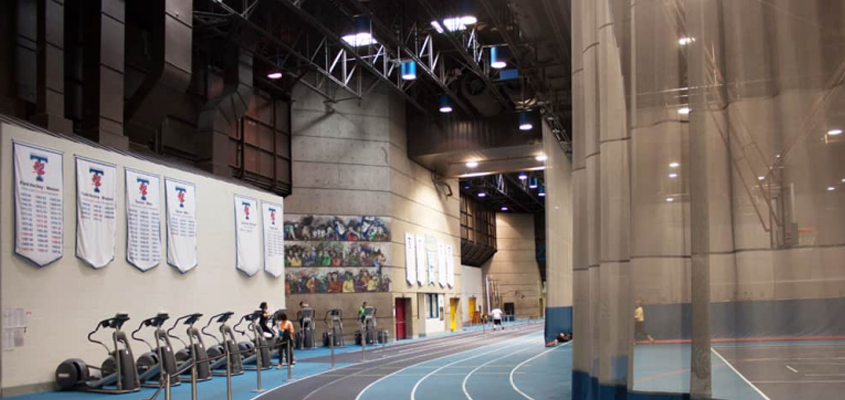
Black track athletes in Canada have been breaking records and creating historic moments in the sport since the early 1900s—but even as prized athletes, they’ve had to contend with racial prejudice in their athletic and personal lives. These experiences are highlighted in Kyle Beatty's research paper, Black Track Stars: A Reflection of Racism within the Canadian Sporting Realm.
Throughout history, many Black athletes had the experience of having their victories celebrated by White Canadians and embraced as a source of national pride. These victories helped to reinforce the myth of Canada as a racially harmonious country, one that was morally superior to the United States for abolishing the practice of slavery many years before the US did.
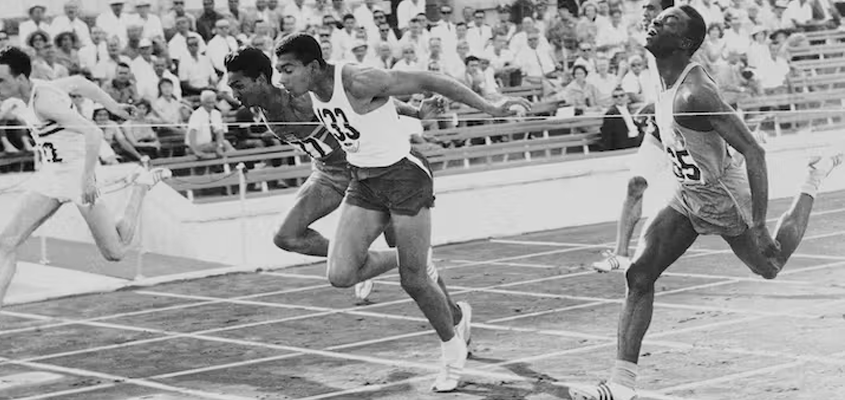
However, racial hierarchies persisted in Canada even after slavery was abolished, and when Black athletes did not meet performance expectations, they faced repercussions: not only were their national identities called into question; they also suffered swift vilification and marginalization in the media.
Despite the systematic discrimination and racism they’ve endured, Black track athletes have continued to persevere and excel in the face of adversity.
Below, we shine a light on Black Canadian track athletes who broke down barriers and paved the way for generations of athletes to come.
Athlete Spotlight
JOHN ARMSTRONG HOWARD
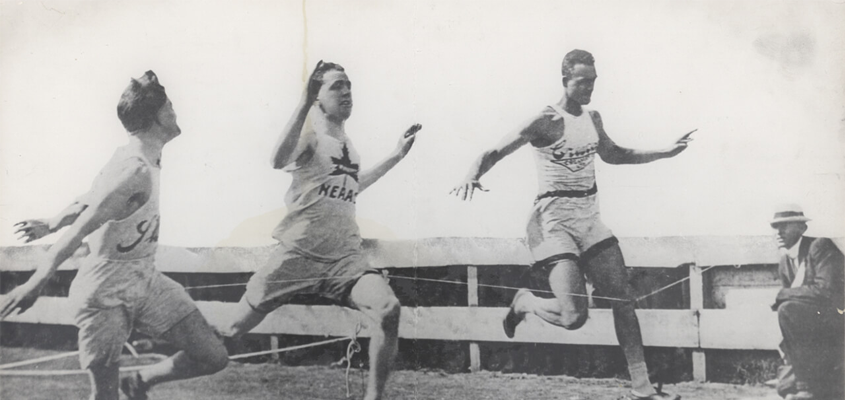
It was at Stockholm 1912 that John “Army” Howard became the first Black Olympian to represent Canada. But even though his selection to the Canadian Olympic Team marked a historic moment, he was subjected to racist coverage in the newspapers of the day. He was forbidden from staying in the same hotel as his White teammates as they prepared to cross the Atlantic and when travelling by boat to Sweden, he was not allowed to eat in the dining room with his white teammates.

A top-ranked sprinter who had previously defeated the Americans who would become Olympic medallists in the 100m and 200m, Howard unfortunately suffered from a stomach ailment in Stockholm and was unable to advance to the finals of his events. He came back in full force at the Canadian Outdoor Championships in 1913, where he won all of his races.
With the onset of the First World War, Howard went overseas in 1917 as part of the Canadian Expeditionary Force. While positioned overseas, Howard won 100m bronze at the 1919 Inter-Allied Games in Paris.
After the war, Howard settled in Winnipeg with his English wife, Edith Lipscomb. As a mixed-race couple, they faced hostility and discrimination. They had three children together but eventually divorced.
His athletic legacy was continued through his grandchildren: Valerie and Harry Jerome both went on to represent Canada at the Olympics in track in the late 1950s and 1960s.
Learn more about John “Army” Howard
Barbara Howard
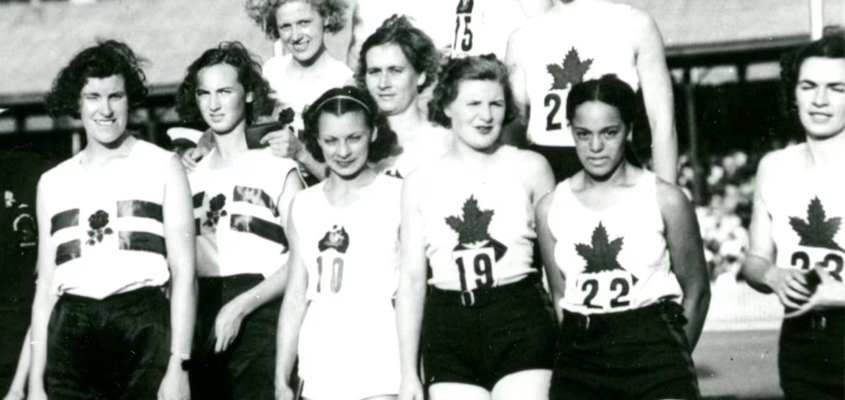
Barbara Howard was just 17 years old when she qualified for the 1938 British Empire Games. She ran the 100 yards in 11.2 seconds, a tenth of a second better than the British Empire Games record. Believed to be the first Black woman to represent Canada in an international sports competition, she came home from Sydney, Australia with a pair of relay medals.
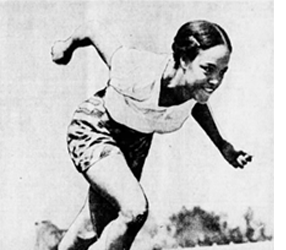
However, Howard never got the chance to showcase her sprinting ability at the Olympic Games: the outbreak of World War II led to their cancellation in 1940 and 1944.
She went on to graduate from the University of British Columbia and became a teacher, making history as the first person of a visible minority to be hired by the Vancouver School Board. She spent 40 years at schools on Vancouver’s east side, with 14 years spent teaching physical education.
Her athletic accomplishments were recognized in recent years. She was inducted to the BC Sports Hall of Fame in 2012 and Canada’s Sports Hall of Fame in 2015. Howard was 96 years old when she died in 2017.
Learn more about Barbara Howard
GEORGE WRIGHT
George Wright was born on February 20, 1963 in Westmoreland, Jamaica. Wright is a celebrated Canadian athlete with a remarkable career in the men's triple jump. In the 1988 Summer Olympics, he showcased his prowess in the men's triple jump, securing the 19th position. Wright emerged as a formidable force, claiming the title of National Champion in 1984-1985 and setting a national record in the men's triple jump. His remarkable achievements began in high school where he is still the senior boys OFSAA Triple jump record holder, at an impressive 15.76m, and a persistent second rank in Canadian history.

Wright represented Team Canada across various prestigious events, including the Pan American Junior Games, Commonwealth Games, Canada vs USA vs China vs Japan competitions, World Championships Juniors, and the Olympic Games.
Beyond his illustrious athletic career, Wright dedicated over two decades to coaching the horizontal jumps at the University of Toronto, imparting his knowledge and passion for the sport. His enduring commitment to athletics and his contributions as a coach further solidify his significant impact on the Canadian sports landscape.
Sources
Kyle Beatty: Black Track Stars - A Reflection of Racism within the Canadian Sporting Realm
Library & Archives Canada Blog: John Armstrong Howard, Canada’s first Black Olympian
Winnipeg Free Press: Manitoban was Canada’s first black Olympian
Canadian Olympic Committee: Black athletes who made Olympic sport history for Canada
Oral interviews (2024) with Andre Metiver and Carl Georgevski
Be sure to explore the other stops on the Black History Here & Now virtual tour to delve further into the experiences of Black Canadians in sport and physical activity.

